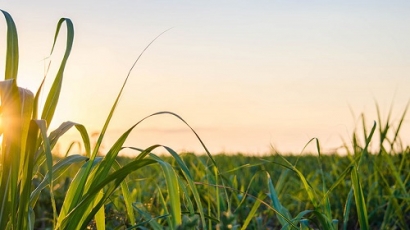
Industrial agriculture is one of the leading contributors to deforestation in tropical and subtropical countries, causing the destruction of ecosystems and the elimination of entire species of animal and plant life. Meeting the demands of a growing population takes a heavy toll on the Earth that's impossible to fully calculate.
That said, agriculture is ultimately necessary to our society's continued prosperity. Without it, we wouldn't enjoy the convenience of grocery stores that allow us to purchase the fruits and vegetables we've come to expect or even basic necessities like wool and cotton products. In short, we've reached an impasse.
With the looming threat of climate change, something has to change, and it has to change soon. Fortunately, we've begun to shift toward more sustainable, cost-effective strategies of supplying goods to the public, and these changes are inventive and interesting.
In places like Mozambique, the transition is already underway. They've promoted agroforestry, which reduces deforestation through the preservation of trees, and conservation agriculture, which seeks to minimize the impact of farming on soil and biodiversity. It's a slow process, however, and change takes time.
Scaling the current agroforestry and conservation efforts to meet the requirements of an entire nation is a significant responsibility, calling on the coordination of many different organizations and farmers. Though representatives of key agricultural institutions have met to discuss possibilities, it's only one small step.
Still, one small step in the right direction is still forward progress. And the meeting of the minds between the Mozambique Institute of Agricultural Research, CARE International and the University of Eduardo Mondlane generated excellent ideas and approaches to the problem with the potential to improve sustainability.
To make sustainable farming an accessible and economically viable alternative to conventional practices, proponents have to campaign for new technologies. They essentially need to educate farmers to the array of options available to them and make a strong case that appeals to their bottom line.
If policymakers and those in high positions of power were to incentivize sustainable technology, it would see greater adoption. It's not enough for well-meaning organizations to approach producers and ask them to change their habits. Having those in government advocate the change will prove invaluable.
Outside of hypotheticals, those who want to spread sustainable agriculture need the tools to do so. For farmers to adapt to eco-conscious standards, they need affordable technology and cost-effective equipment to replace the machinery they've grown accustomed to using. Testing has to take place.
Still, proponents of sustainable agriculture make progress every day. Farmers in the United States have changed their procedures in small but significant ways to support the push toward environmental friendliness. It doesn't take very much to lessen environmental impact, and their solutions show ingenuity.
Some in the farming community rebuild or purchase rebuilt machines, reducing the waste of old parts that accumulate in landfills. Instead of purchasing new equipment, this cost-effective choice to operate sustainably not only alleviates pressure on the environment, but also on the farmer's budget.
In addition to rebuilt machines, farmers also have a healthy alternative to common pesticides. Natural pest management involves the integration of beneficial insects and animals like lacewings and birds to act as predators for organisms that endanger their crops. Those in the agriculture industry don't lack creativity.
Another cost-effective solution is the use of mulching and ground covers. Farmers who protect their crops with this extra layer of protection can conserve soil moisture and in some cases, eliminate the need for harmful herbicides — and it's difficult to argue against fewer chemicals in the production of food.
A global transformation in agriculture won't happen overnight. But day by day, the world is moving closer to the goal of sustainable and cost-effective farming. It's the hard work of individuals and the collective initiative of dedicated organizations that will bring the image of a healthy planet into focus.
Whether you're a farmer in Mozambique or a consumer in Kansas, we all have roots in the Earth.
Check out Emily's website

